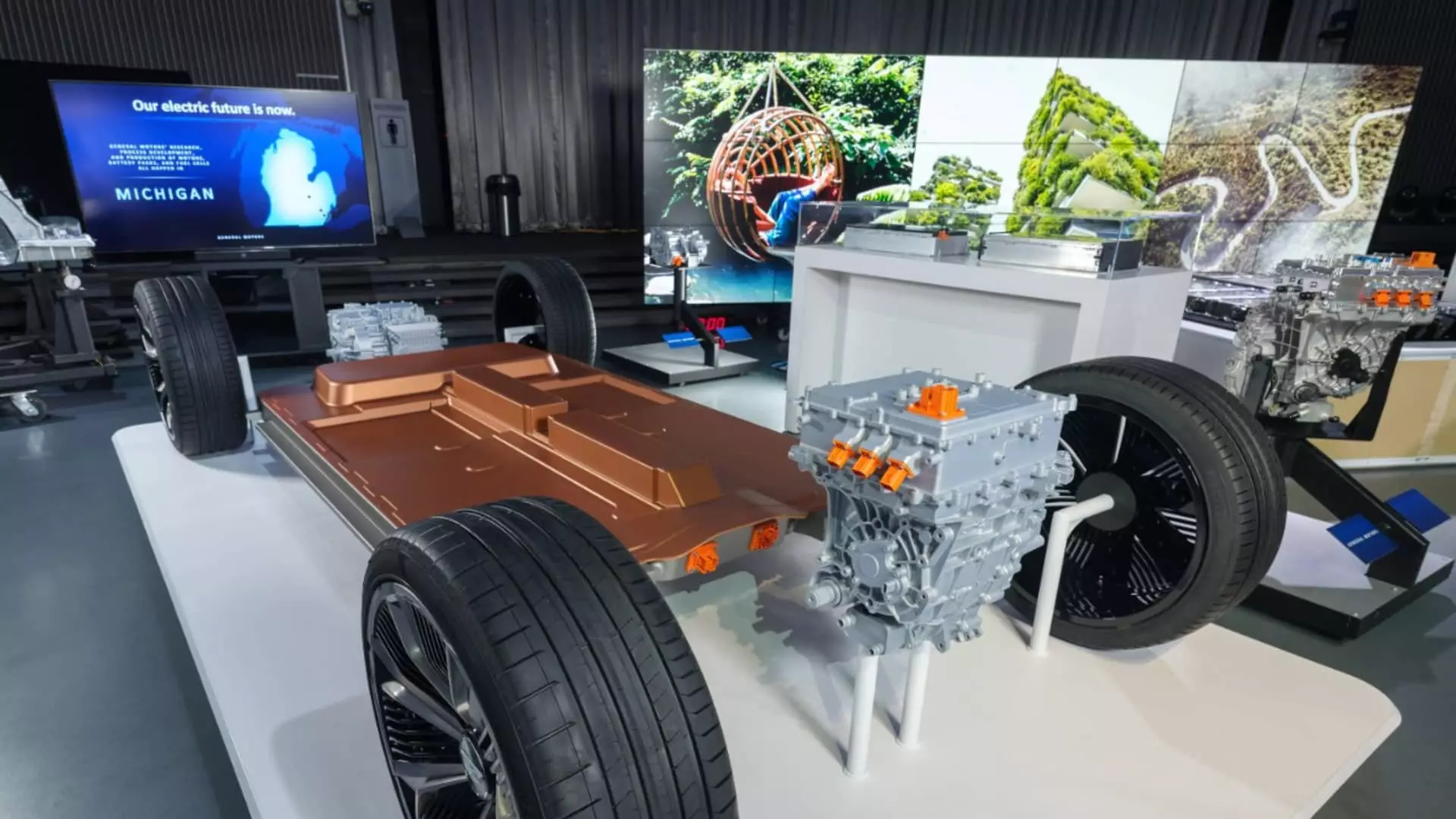In a pivotal move for the automotive industry, General Motors (GM) has announced its decision to divest its stake in a $2.6 billion electric vehicle (EV) battery cell manufacturing plant located in Michigan. This sale is expected to involve its joint venture partner, LG Energy Solution (LGES), and is anticipated to close within the first quarter of the upcoming year. While this transaction may raise eyebrows, GM assures stakeholders that it plans to recoup its initial investment, with estimates suggesting around $1 billion will be recovered from the sale.
The battery plant in question, an impressive 2.8 million square feet in size, has been hailed as a crucial component of GM’s strategy to dominate the electric vehicle market. Launched in January 2022, the Lansing facility was expected to serve as the third battery cell plant under the Ultium Cells LLC joint venture, with its sister facilities already operational in Ohio and Tennessee. This facility’s completion aligns with GM’s broader initiative to become a leader in the rapidly growing EV sector.
GM’s decision to sell its stake in the Lansing plant is underscored by a backdrop of disappointing consumer demand for electric vehicles. The automaker’s production strategies are undergoing recalibration as management strives to optimize outputs and adapt to the evolving market landscape. Additionally, uncertainty looms regarding the future of federal incentives related to EV manufacturing and customer purchase, exacerbated by political changes in the U.S. These factors combined suggest that GM felt compelled to reshuffle its operational structures in light of shifting consumer preferences.
Importantly, GM has clarified that the divestiture will not affect its overall stake in the Ultium joint venture. Instead, this decision represents a strategic repositioning, allowing the company to strengthen its resources and collaborations. As GM’s Chief Financial Officer, Paul Jacobson, articulated, the transaction is poised to enhance efficiencies by leveraging a manufacturing facility that is nearing completion while addressing anticipated demands in the EV market.
The relationship between GM and LGES appears not only intact but potentially invigorated by this transaction. GM has also announced the extension of its 14-year battery technology partnership with LG Energy Solution. The focal point of this extension lies in the development of prismatic battery cells—flat, rectangular batteries that promise space-efficient packaging and reduced excess weight within EVs. This strategic alignment aims to bolster GM’s product line with enhancements that will drive down costs and improve efficiency, ultimately benefiting the consumer.
Kurt Kelty, GM’s Vice President of Battery Cell and Pack, emphasized the importance of optimizing battery technology through collaborative efforts with LGES. By embracing innovations such as prismatic cells, the company hopes to enhance vehicle performance and safety while simplifying production processes. This indicates GM’s proactive approach in adapting to the evolving technology landscape in battery manufacturing, which is critical to maintaining competitiveness within the EV segment.
Looking ahead, GM’s path within the electric vehicle market appears strategically sound despite potential bumps along the way. The decision to sell its stake in the Lansing battery plant may initially seem like a setback, but it reflects a broader tactical awareness of both current market dynamics and future demands. By streamlining manufacturing resources and focusing on collaborative developments with LG Energy Solution, GM is positioning itself to react dynamically to the challenges that lie ahead.
Moreover, the exploration of different battery chemistries and configurations, including the move towards prismatic cells, illustrates GM’s commitment to evolving its technology portfolio. General Motors’ ability to pivot in response to market conditions while deepening its partnerships suggests a sophisticated understanding of the competitive landscape in the electric vehicle sector.
GM’s recent announcement is more than just a divestiture; it is a calculated step towards maximizing operational efficiencies and enhancing product offerings in an ever-changing automotive environment. The outcome of this strategic maneuver will likely play a critical role in shaping the future of GM as a pivotal force within the burgeoning electric vehicle marketplace.


Leave a Reply